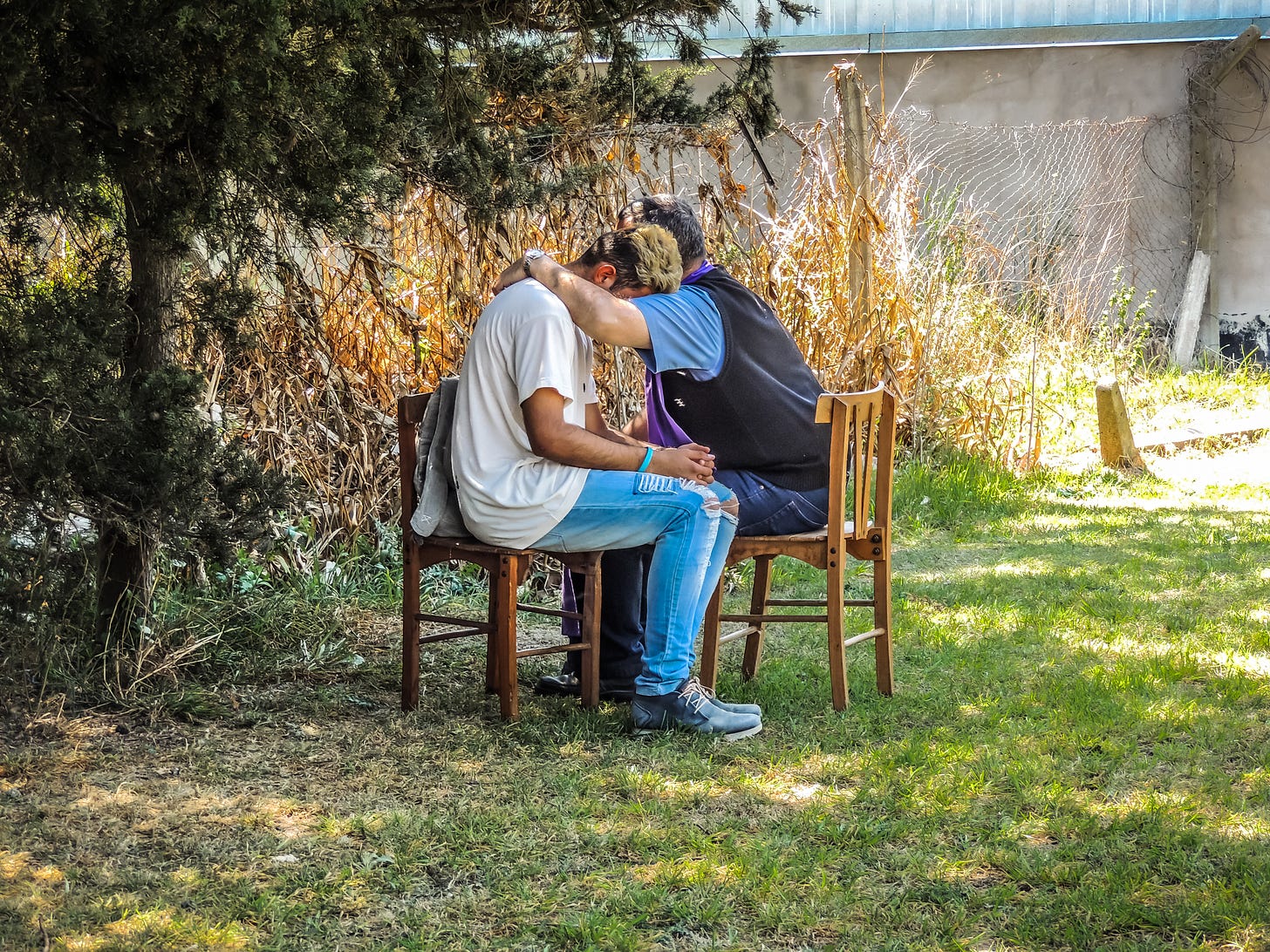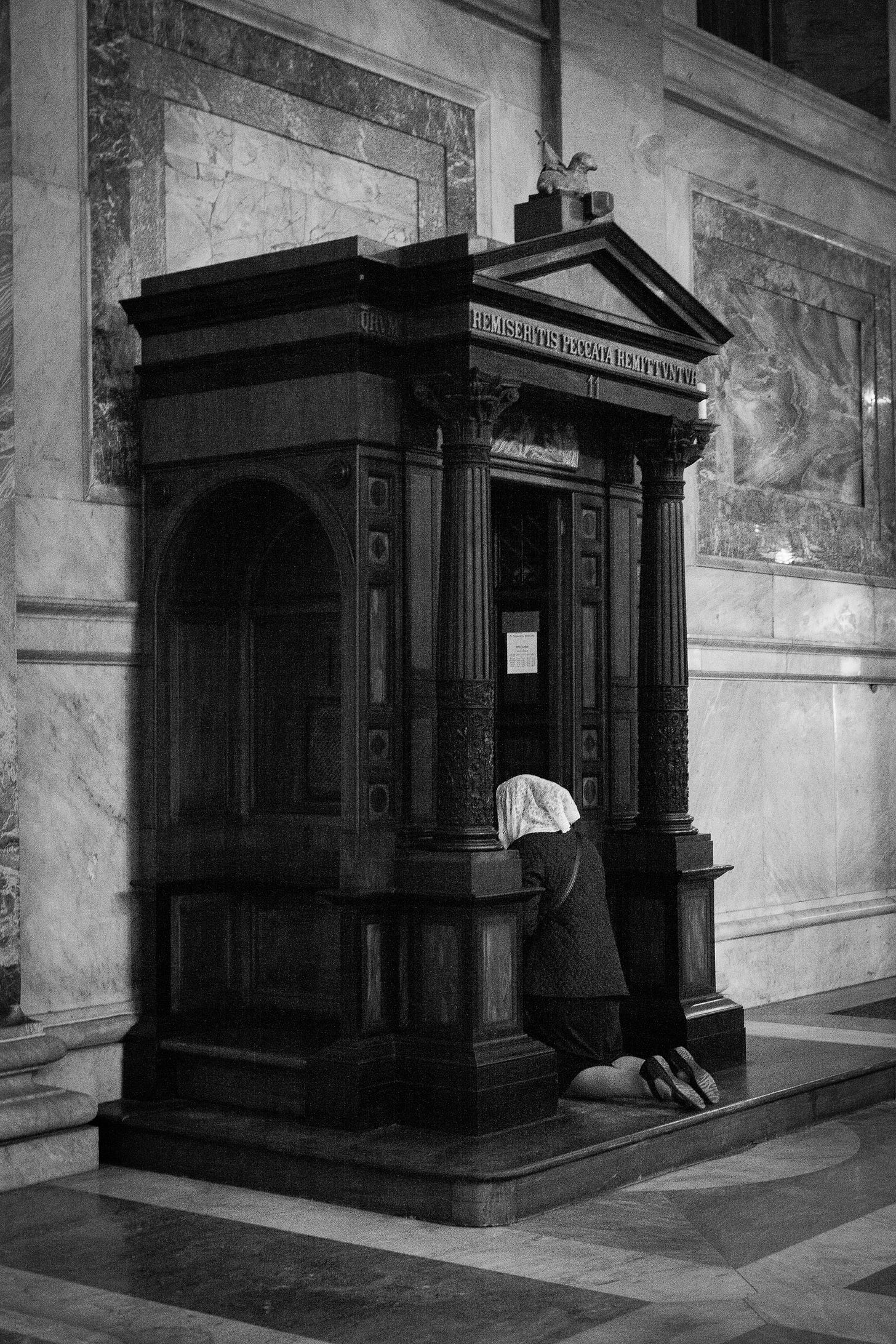In re-watching and preparing last week’s review of The Chosen “Intensity in Tent City”, I spent a lot of time reflecting on the scene between Mary Magdalene and Tamar. I want to look closer at Tamar’s response to Mary, “I am sorry for the shame and regret you feel. Truly, it must be very painful. But Jesus forgave you, and you choose to hold onto it.“
Mary had just called out Tamar for her boldness and lack of humility. Mary confessed, “I pray every day I will never be anywhere without Him again” and “I’m doing everything I can day after day, and I’m afraid I’m still broken. I worry I will never be enough.” When Tamar asked her why she doesn’t see how amazing she is, Mary responded, “I don’t think we are supposed to see it.”
Mary Magdalene is very clearly paralyzed by shame from her past. She is unable to accept Jesus’s forgiveness because she is unable to forgive herself. We too can fall into this trap. When we cannot accept God’s forgiving grace we are allowing our pride to stand in the way. God’s mercy is endless and we do not deserve it, nor do we earn it. If I tell myself, “I don’t deserve forgiveness for (insert sin) because it is just too grievous,” I would be right. I do not deserve God’s mercy, but He gives it freely anyway. He took on human flesh, to conquer death, and free me from eternal damnation precisely because His loving mercy is infinite, therefore, regardless of whether or not we deserve it, God always forgives us.
In an answer she gave regarding sin, Mother Angelica explained that our response to the regret we feel after sinning can make the difference between life and death. Our regret can either lead to sorrow or remorse. When Peter denied Jesus three times, in Luke Chapter 22, we are told that Peter wept bitterly. Peter’s regret turned to deep sorrow. He did not let his pride keep him from Jesus. Sorrow led him to repentance, admitting his guilt, and grace allowed Peter to receive God’s mercy.
We know from Matthew Chapter 27 that Judas also regretted his actions after betraying Jesus, but in contrast, Judas’s regret turned to hopelessness because his pride led him to believe that his sin was unforgivable. Hopelessness became remorse and shame. Not only was his sin unforgivable but now he was unforgivable. His remorse resulted in his death. Remorse is not only hopeless but also self-centered. When we experience remorse we sink ourselves into shame. We commit the error of thinking we sinned because we are a bad person, not because we made a mistake. Shame affects our self-image, hindering our ability to repent and seek forgiveness.
It is necessary to regret our sins to be repentant. What we do with our regret is important. If we can turn our regret to sorrow and repent, our Lord offers forgiveness and eternal life. Beware of remorse and shame. These are lies from the evil one that will lead you away from the Father that is love. Satan wants you to experience the despair that comes from separation from the Father’s love and forgiveness.
A few weeks ago, my family and I were blessed to attend FOCUS’s SEEK24 conference. On Wednesday night, in preparation for adoration and confession, Father Mike Schmitz delivered a fantastic keynote address. He began by telling the story of the prodigal son. I think this is one of the stories we hear so often that we may have become desensitized. However, Father Mike recounted it with vivid detail, emphasizing the magnitude of the son’s betrayal. He reminded those in attendance that we too have a loving Father, waiting for us to return so that he can heal us with tremendous love and mercy. Listen to Father Mike’s talk here.
If you haven’t done so already this new year, go make a good confession and allow the Father to heal you. Allow Jesus to take your burden, your sins, and nail them to His cross. Walk into this new year with joyful confidence, knowing His love and mercy.







